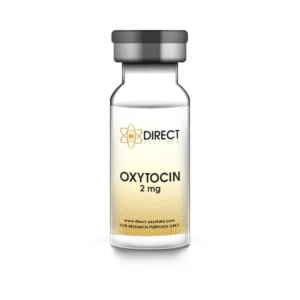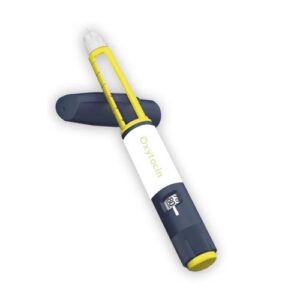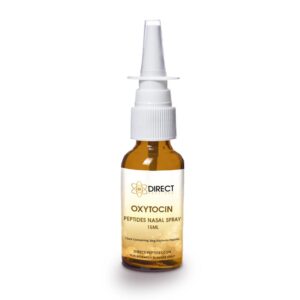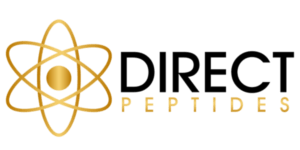Oxytocin, a nonapeptide hormone synthesized in the hypothalamus and secreted by the posterior pituitary gland, plays a crucial role in a variety of physiological and pathological processes.
Oxytocin has been extensively studied for its role in social bonding, sexual reproduction, childbirth, and the period after childbirth. It’s often referred to as the “love hormone” or the “bonding hormone” because of its involvement in trust and emotional attachment.
Given its diverse physiological roles, research suggests oxytocin has potential therapeutic applications in conditions like autism spectrum disorder (ASD), schizophrenia, and anxiety disorders. For instance, several studies have shown that intranasal administration of oxytocin can enhance social cognition and social skills in individuals with ASD.
Showing all 3 results



SALE
[1] https://pubmed.ncbi.nlm.nih.gov/20047458/
[2] https://www.ncbi.nlm.nih.gov/ pmc/articles/PMC4290532/
[3] https://pubmed.ncbi.nlm.nih.gov/21981277/
[4] https://pubmed.ncbi.nlm.nih.gov/26208744/
[5] https://www.ncbi.nlm.nih.gov/ pmc/articles/PMC4815424/
[6] https://pubmed.ncbi.nlm.nih.gov/22141469/
[7] https://pubmed.ncbi.nlm.nih.gov/24979580/
[8] https://www.ncbi.nlm.nih.gov/pmc/articles/PMC5868755/
DISCLAIMER: We do not supply peptides to any individual under the age of 21. You must be a licensed and qualified healthcare practitioner. Our team of dedicated professionals are committed to providing an extensive range of products used ONLY in the process of laboratory research by responsible trained and professional individuals. All products listed on this website (https://lithuania.direct-peptides.com) and provided through Direct Peptides are intended for laboratory research purposes only. The products listed on this website are NOT for human or animal consumption or ingestion of any kind.

401 N. Mills Ave, Ste B, Orlando, FL 32803, United States
